What Is The Future of Blockchain Technology?
Every few years a new development shakes up the tech industry and sends everyone scrambling for answers. First came the Internet, then WiFi, the Cloud, the Internet of Things, Artificial Intelligence, 5G... and now the blockchain.
If there’s one common thread among all of these tech innovations is that they typically run in the background of our lives. Most people don’t know, nor need to know, how each of these technologies works in order to use them.
For IT and help desk professionals, getting into the nitty-gritty of how things work is a requirement in your career — if only to explain the latest trends and buzzwords to non tech-savvy customers. For small business owners and entrepreneurs, staying ahead of the curve when it comes to blockchain technology is vital to your business's success.
Blockchain technology first burst on the scene with the rise of cryptocurrencies.
I’d wager that most people have only heard the term "blockchain" in reference to the technology powering Bitcoin, Ethereum, Ripple, and a whole slew of other cryptocurrencies. But there’s much, much more to blockchain technology than digital currency.
Let's delve into the near future to examine blockchain uses beyond cryptocurrency, and in case you need a refresher, let’s talk about what blockchain technology is in the first place.
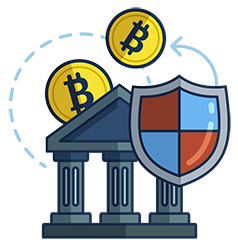
What is Blockchain?
Simply put, the blockchain is a digital ledger (a form of record-keeping technology).
“Cool,” you’re probably thinking to yourself. “What’s the big deal? Online banking has existed for eons. A digital ledger is nothing new.”
But unlike existing ledgers, which require a middleman (like a bank), blockchain is a highly secure and completely decentralized database.
Think of it as a massive spreadsheet that anyone can view, but no one can edit without the consensus from all other users. Each record (or block) is verified, time-stamped, and encrypted. Theoretically, no single entity could change, revise, or corrupt an entry without explicit consent from all other users, which means the information within is extremely secure.
This is why people can quickly, easily, and cheaply exchange cryptocurrencies without a bank or other financial institution managing those transactions.
Blockchain Uses that Aren’t Cryptocurrency
Now that you’re caught up on how blockchain works, let’s dive into some real-world applications outside of buying and selling Bitcoin.
Peer-to-Peer Transactions
Crowdsourcing applications have changed the way people provide and acquire goods and services. From Uber and Lyft to Favor and Instacart, millions of people participate in the so-called “gig economy” every day.
But while it might feel as though each transaction is only between you and the friendly stranger who drove you to the airport or delivered your groceries, it’s still based on a top-down hierarchy with a middleman. When you use a rideshare app, for example, your account is charged for the cost of the ride, the platform takes a cut, and the driver is paid out depending entirely on the platform’s accounting processes.
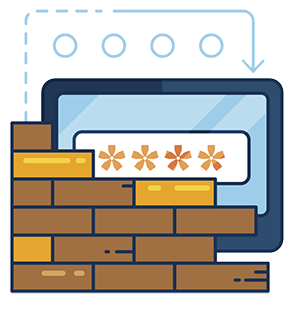
Imagine if, instead, you could instantly transfer funds directly to the person who provided the service without bank waiting periods or platform fees? With the decentralized ledger system that blockchain technology delivers, you could enjoy the transparency and convenience of charging or paying for all your small peer-to-peer and gig economy services, as well as larger and more in-depth services like home renovations. That’s exactly the sort of future that blockchain technology could provide.
Healthcare
If you’ve ever changed doctors or needed to be referred to a specialist, you probably know the frustration of waiting while your information is sent from one place to the next (often, still via fax). Depending on the office’s administrative processes (or lack thereof), this can take several hours or several days. And just how secure is their process, anyway?
Blockchain technology could eliminate this headache for everyone involved. Instead of needing to send information back and forth, healthcare organizations could access a secure, decentralized database where all medical records are stored. Instead of having to list out all of your allergies and family medical history each time you visit a new doctor, they could access your information instantly, and securely.
Voting
Unless you’ve been living under a rock, you’ve probably heard a lot recently about election meddling and voter fraud. Instead of the real concern of electronic voting machines being hacked, blockchain technology is able to record and verify votes, effectively ending double-voting and recounts, and the potential for cybercriminals to alter votes.
This is already being put to the test. In March 2018, Sierra Leone became the first country to hold a blockchain-powered election. Another benefit of blockchain voting solutions is convenience. If people could vote online from the comfort of their own homes, it would eliminate lines and election day hassles, and drive an increase in voter turnout.
There’s no denying the bright future that lies ahead for blockchain technology, and these are only three of the endless possible applications. From quality assurance to contract management, accounting to unified communications, new blockchain-powered solutions are being developed for nearly every industry.
By staying up-to-date on the latest blockchain technology innovations and all its potential uses, small business owners and entrepreneurs can be on the forefront of whatever development comes next that can help their businesses provide better and more secure online transactions.




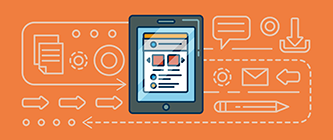
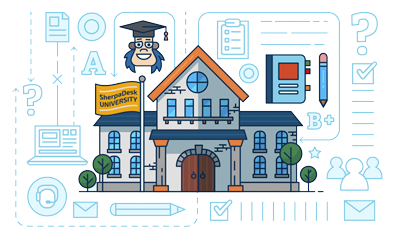

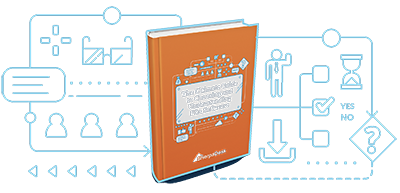

comments